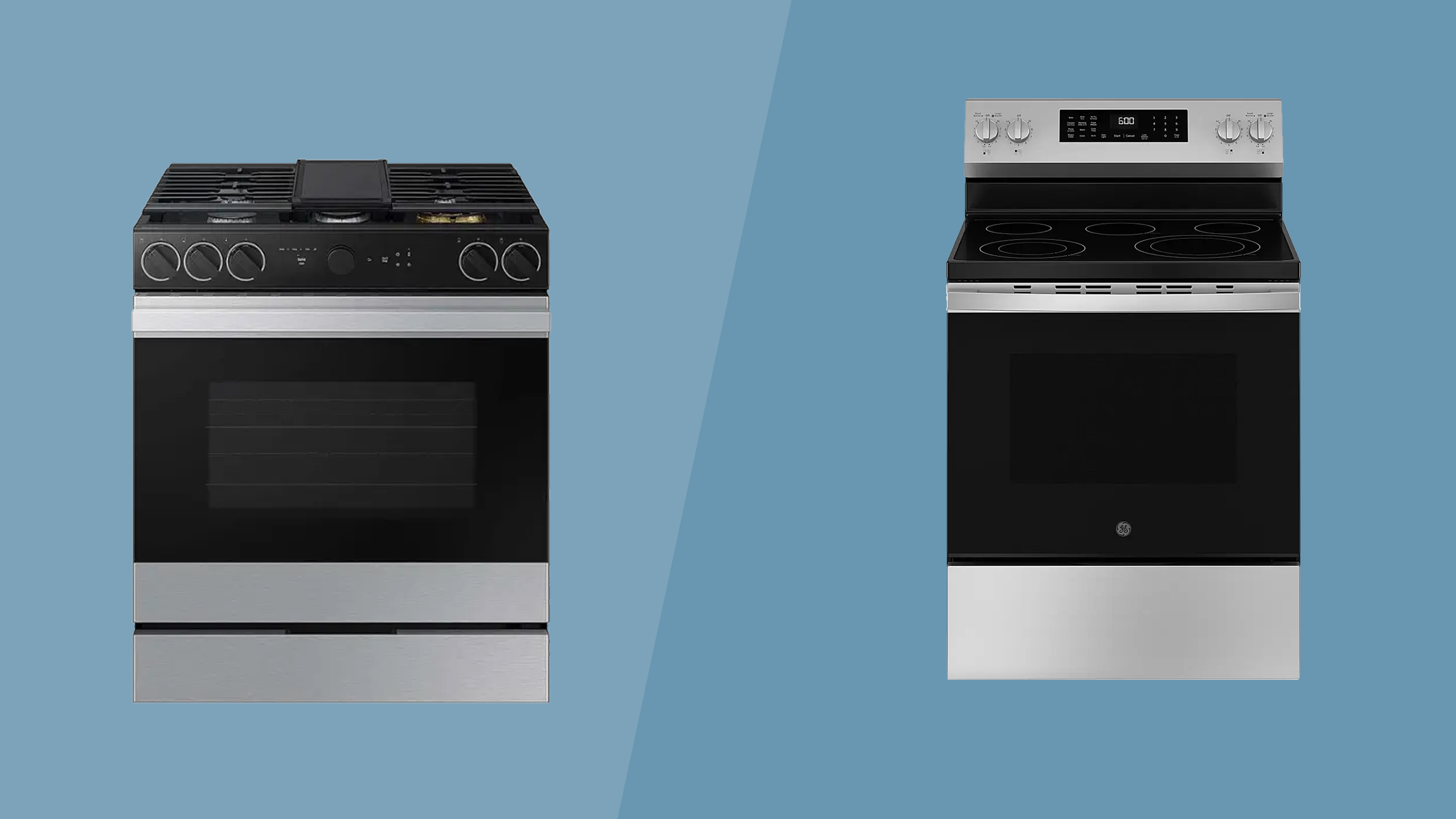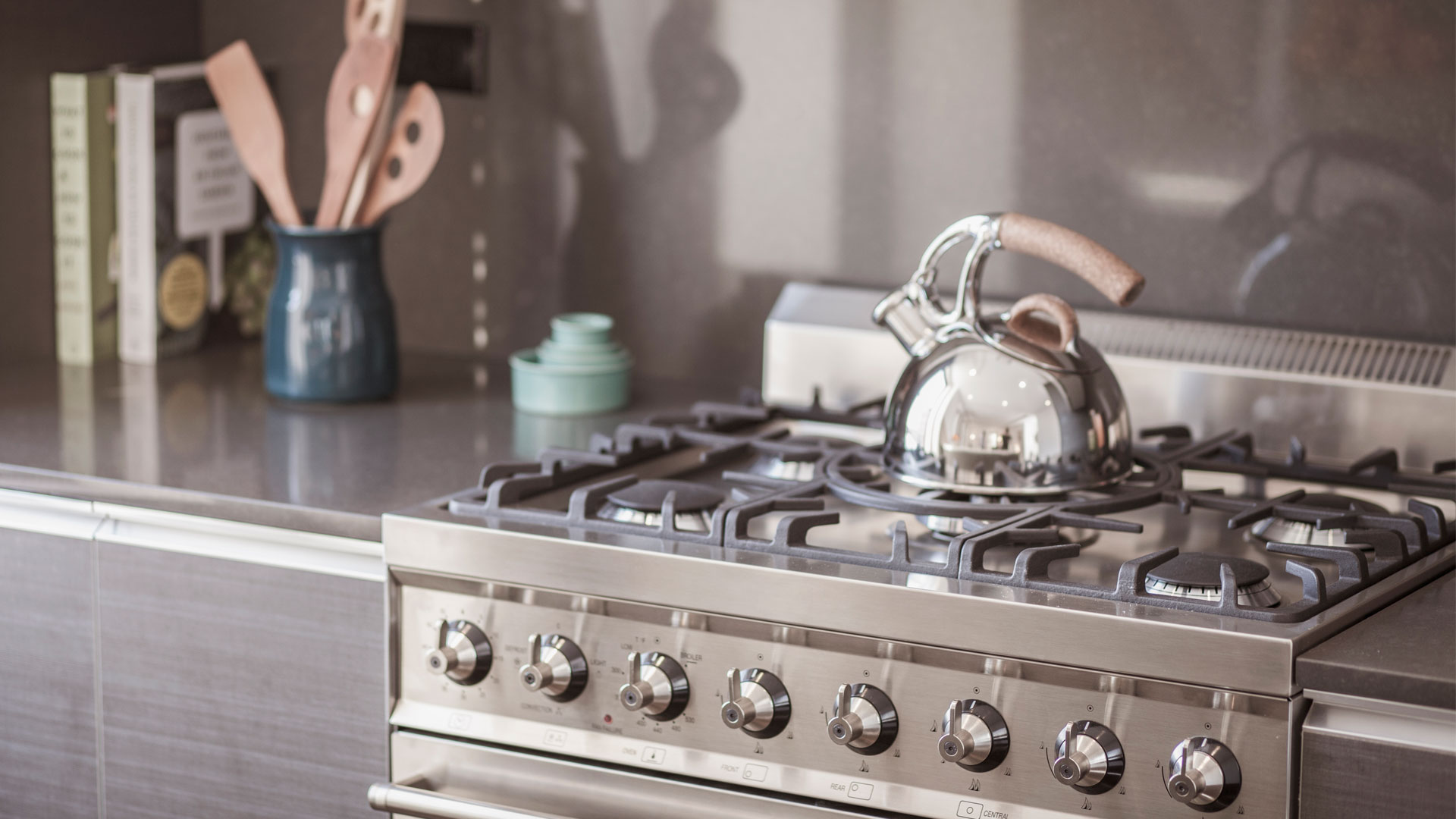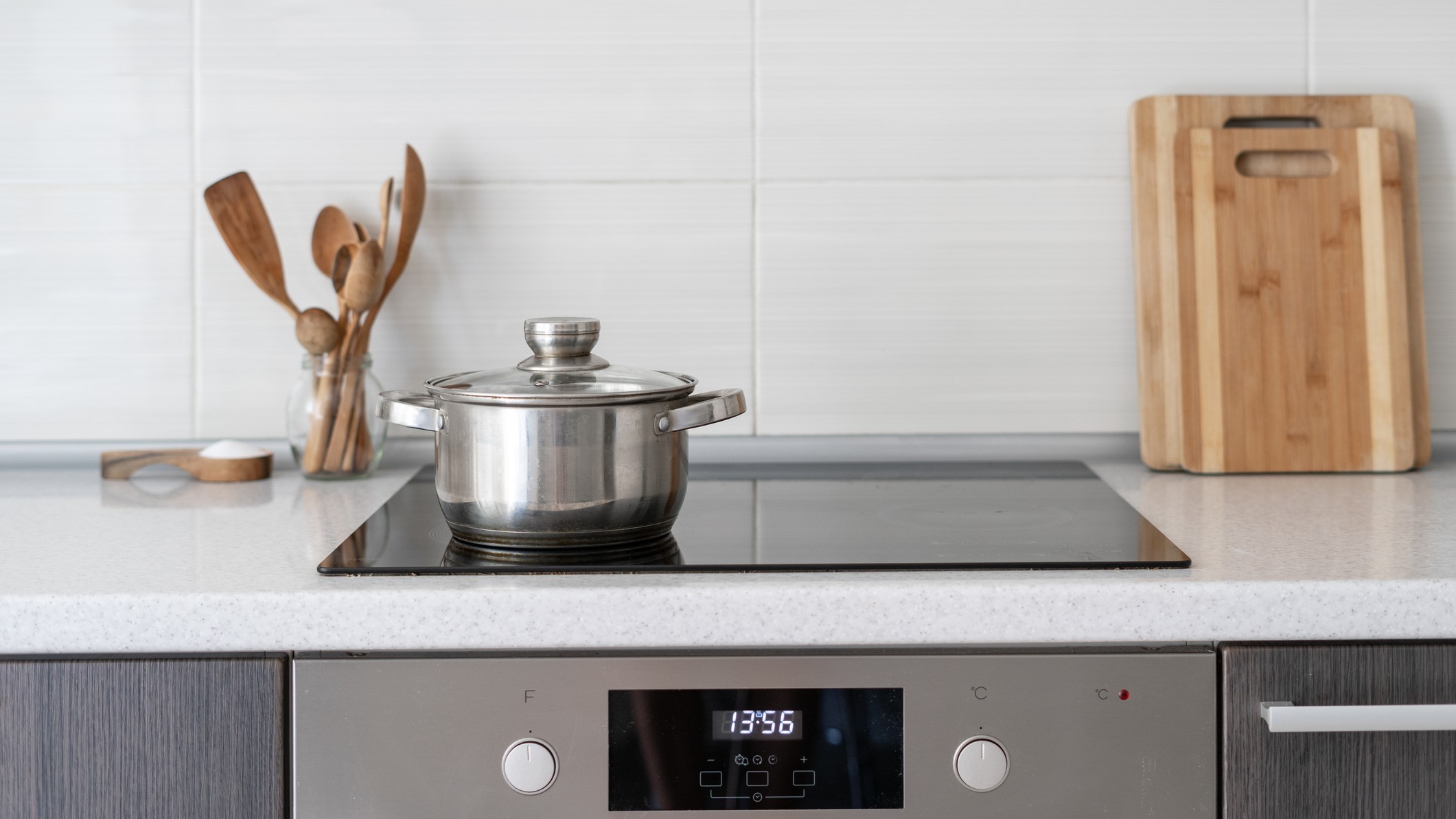
Regarding gas vs. electric ovens, which should you buy and why? We’ll examine the pros and cons of the best gas ranges compared to the best electric and ovens. We’ll also consider whether price and efficiency should factor into your decision to help you choose between gas and electric ovens.
Any keen cook will know that an oven is one of the most important appliances in your kitchen. From cooking your Thanksgiving turkey to baking birthday cakes for loved ones, these appliances play a central role in most big occasions and everyday life, so we’ve compiled everything you need to know, from costs to the range of models each type of oven offers.
With running costs and the impact on the environment becoming increasingly important to consider, we'll also share some advice on choosing an efficient oven.
Gas vs electric ovens: Price & value
- Both start around $400-$500 and can reach $20,000
- For budget-conscious buyers, single electric wall ovens begin at $400, making them more affordable than gas models, which start at $650. Dual fuel ranges start at $1,500.
If you think affordability will be the easiest way to decide between a gas and an electric model, you’ll be disappointed. You won’t see much difference between the price tags for gas and electric ranges. They start in the $400-500 region and can go up to $4,000 or even as high as $20,000 for the large premium models. If you want the convenience of a dual-fuel range (gas stove and electric oven), this is where the price difference is noticeable; dual-fuel ranges start at around $1,500.
There is a price difference for wall ovens. Single gas wall ovens start at around $650, but single electric wall ovens start at a more affordable $400. So, electric is the way forward if you’re looking for a wall oven on a budget. A double electric wall oven will cost anything from $1,600 upwards, but double gas wall ovens are harder to find.

Gas vs electric ovens: Features & functions
- Gas ranges are more widely available than electric, while electric wall ovens dominate the market due to higher prices and limited gas models.
- Running costs for gas ovens are generally lower than those for electric ones, but efficiency features like convection and good insulation are considered for better performance.
Both gas and electric ranges are widely available with plenty of models to choose from, but there are more gas and dual fuel ranges available at the large appliance stores; Home Depot, for example, has double the number of gas ranges than electric ranges online.
The opposite is true for wall ovens. Here, electricity is king. Not only are gas wall ovens higher priced, but there are fewer models to choose from, and double gas wall ovens are very hard to find.

Running costs are an important consideration when choosing between gas and electric ovens, and these will vary depending on your energy supplier and which state you live in. However, there’s no denying that gas is generally cheaper, so gas appliances cost less. It’s important to note that if your gas oven doesn’t have an electric ignition, it will use a pilot light, which means it’s constantly burning gas and, therefore, is not an efficient option.
Unfortunately, the federal ENERGY STAR program doesn’t currently provide certification for ovens and ranges. Additionally, the yellow and black EnergyGuide labels that give useful running cost estimates for appliances do not cover ovens and ranges, leaving consumers in the dark when determining whether gas or electricity is the most efficient option.
Other things to look out for will narrow your search and help you find a more efficient option. Convection ovens use a fan to circulate hot air around your food, speeding up the cooking process and making them a more efficient choice.
Also, look for an oven with great insulation to trap the heat—self-cleaning models often offer this.
Gas vs electric ovens: Performance
- Electric ovens offer even heat, easy installation with 240V, and safety from gas leaks, but can suffer from power outages and slower preheating times.
- Gas ovens provide quick cooking, precise temperature control, and moisture retention but require professional installation and pose gas leak risks if mishandled.
Electric ovens heat more evenly, so they are better for baking, where consistent heat is essential for even rising and browning. They tend to have fewer hot spots, so you don’t need to rotate trays as much as you would in a gas oven. Electric ovens also produce a drier heat, making them ideal for roasting and broiling.
Electric ovens and ranges are easier to hook up, so long as you’ve got a 240V outlet. Many homeowners tackle the installation themselves. Electric appliances are generally safer because they eliminate the risk of gas leaks, and there’s less fire risk. However, as you’d expect, precautions should be taken with all types of ovens.
With faster cooking and quick temperature adjustments, gas ovens offer more control and produce a moist, more humid heat, which helps prevent foods from drying out during cooking.
If your previous range or oven was gas, installation, and setup will be easier than installing a 240V outlet for an electric appliance.

Electric ovens are slower to react when adjusting the oven temperature than gas ovens, and they’re generally slower to preheat, too. Depending on what you’re making, many people also experience slower cooking times in electric ovens.
If you don’t have a 240V outlet for an electric oven or range, you’ll have to pay an electrician to install one, which adds to the initial cost. Electric ovens are affected by power outages, so electric might not be the best option for those living in areas where power outages are common.
In some states, codes don’t permit homeowners to install gas ovens; even if permitted, it’s often advisable to use a professional to install it for you. This means installation costs will be higher for gas. With any gas appliance, there’s a danger of gas leaks, so safety must be taken into account, and this is why a professional installer is the way to go.
If your kitchen doesn’t have a gas line running into it, you’ll have to factor in this additional cost when determining the price of the range or oven.
Gas vs electric ovens: which should you buy?
- Electric Ovens are safer, easier to install, and provide optimal baking results, but they can be more expensive to run and purchase. Ideal for avid bakers, but transitioning from gas may require some adjustment.
- Gas Ovens are cheaper to run if a gas line is available, with a wider variety of models, but they have higher installation costs and limited options for wall ovens. Safety is a concern, and they can be more expensive to buy compared to electric ovens.
In summary, electric ovens and ranges are safer and easier to install. If you’re looking at wall ovens, they are definitely cheaper to buy while being more readily available. Avid bakers should opt for an electric oven for optimal results, but they are more expensive to run, which will be noticeable if you use them a lot.
Gas is cheaper to run, so long as you already have a gas line to your house. There’s a wider variety of gas models, but safety and installation costs are a downside. There’s very little choice regarding gas-wall ovens, which are more expensive.
Electric ovens are better for safety and better, more even baking, but often, it boils down to which type you’re most used to using. Despite the pros and cons, if you’ve been using one type for your whole adult life, the transition to a different fuel will take a bit of getting used to and will require some trial and error before you achieve the results you’re looking for in the oven.







